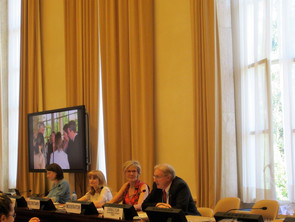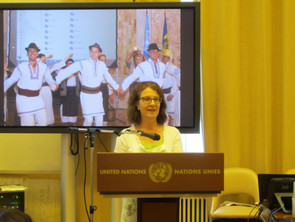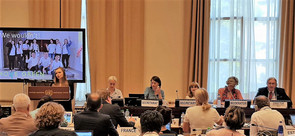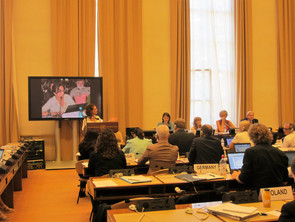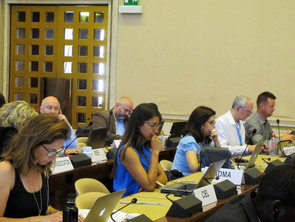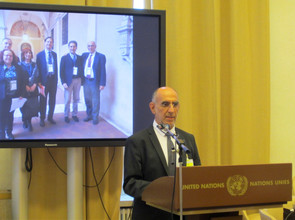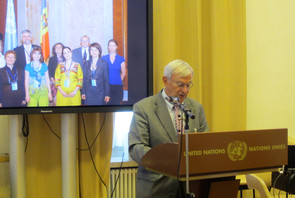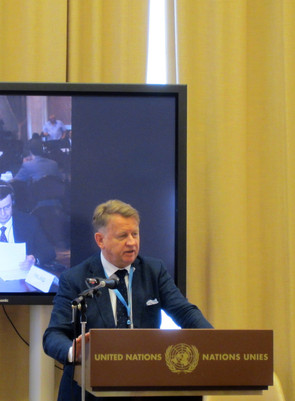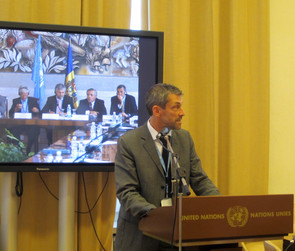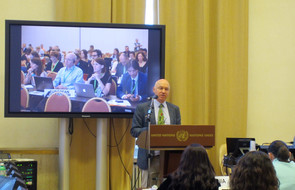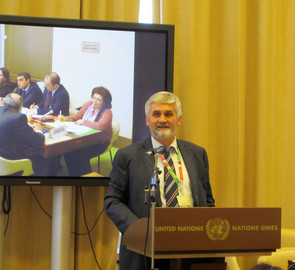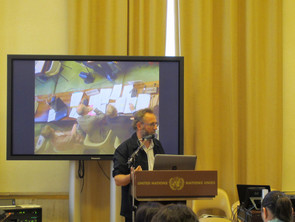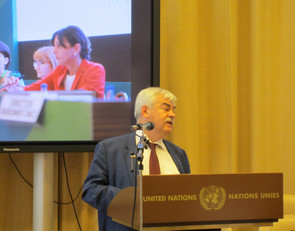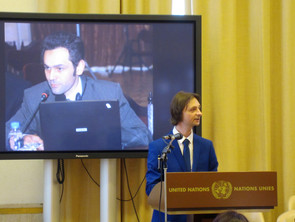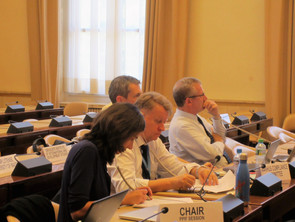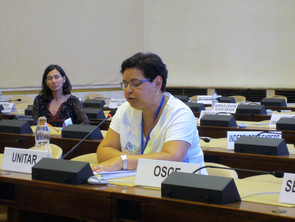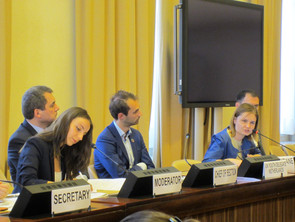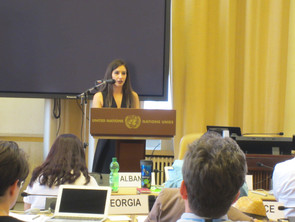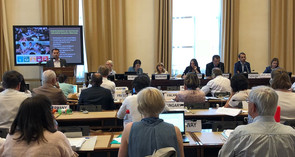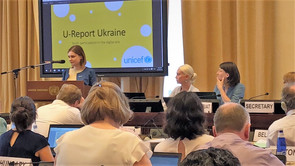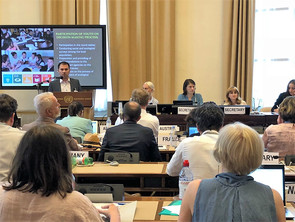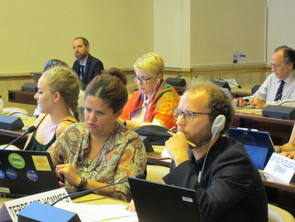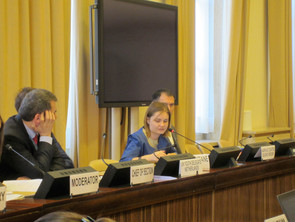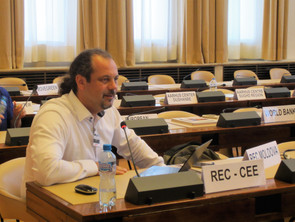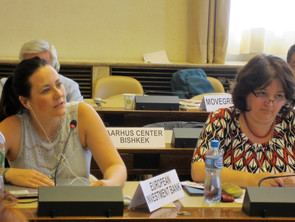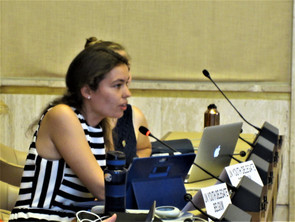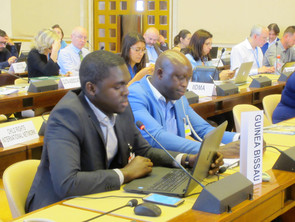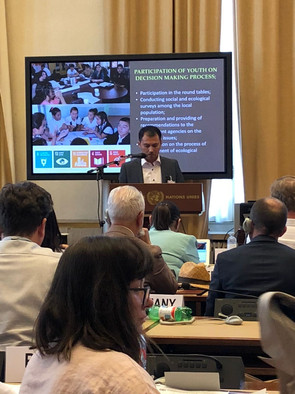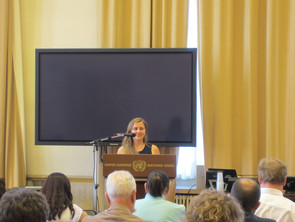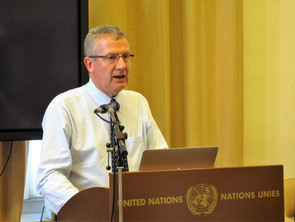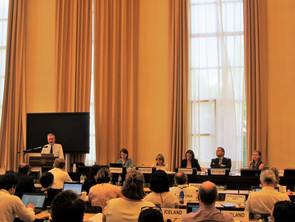On the occasion of the twentieth anniversary of the adoption of the Aarhus Convention, the Twenty-second meeting of the Working Group of the Parties featured a special segment during which delegates heard testimonies by former and present Chairs of different bodies of the Convention, representatives of Governments, non-governmental organizations, academia and other experts, who played an important role in promoting the Convention. Moreover, youth was invited to discuss with delegates how they considered Aarhus rights help them to create a sustainable future. Parties and different stakeholders were also given opportunity to network and explored potential areas for matching needs with the available expertise. In addition, Parties and stakeholders were invited to contribute to several communication activities that were planned to mark the Anniversary.
The detailed programme for the Anniversary Segment and other material is available on the meeting web page. (please see tab below).
Prior to the meeting of the Working Group of the Parties a special Anniversary Event to celebrate the 20 years of the adoption of the Aarhus Convention was held in Rome on 15-16 May 2018. The Rome Anniversary Event was organized by Italy in cooperation with the secretariat of the Aarhus Convention and European Environmental Bureau. The Event provided the first opportunity to look back at the time when the Aarhus Convention was negotiated as to reflect the main challenges and to debate the present critical issues and the way forward. The meeting was unique in its format, as it allowed Parties, NGOs and other stakeholders to share their views in an open and rather informal way (see programme of event). The outcomes of the Event were brought to the discussion at the 22nd meeting of the Working Group of the Parties (Geneva, 19-21 June 2018), in particular in the context of reviewing the role of the Convention in furthering SDGs and its use by Youth.
Twenty years after its adoption in 1998, the UNECE Convention on Access to Information, Public Participation in Decision-making and Access to Justice in Environmental Matters (Aarhus Convention) remains a model example of the application of the concept of “environmental democracy” as enshrined in Principle 10 of the Rio Declaration on Environment and Development.
When the Convention entered into force in 2001, the former Secretary General of the United Nations, Kofi Annan, called “The Aarhus Convention […] the most ambitious venture in environmental democracy undertaken under the auspices of the United Nations. Its adoption was a remarkable step forward in the development of international law.”
Today, twenty years later, the Convention still demonstrates how environmental democracy can promote transparency and transboundary cooperation; how it can help environmentally-sound management of resources; and lay the foundations for peaceful, inclusive and just societies.
At the same time, the anniversary serves as a reminder to recall the significance of democratic values for our societies and for sustainable development more broadly. This is especially important in a context where some societies are experiencing trends moving away from these values and towards greater restrictions on civil and political liberties. Environmental activists are increasingly the targets of repressive measures and retaliatory actions. It is crucial that people exercising their environmental rights do so free from fear.
The Budva declaration adopted last year at the sixth session of the Meeting of the Parties to the Convention addresses this critical issue and demonstrates strong commitment by Parties to the Aarhus Convention to promote environmental democracy throughout efforts to deliver on the 2030 Agenda on Sustainable Development.
Democracy, good governance, participation and the rule of law are at the heart of sustainable development. They are enshrined in SDG 16 that impacts the achievement of all SDGs. They are also prerequisites for addressing cross-cutting global challenges, such as climate change, environmental impacts on health, and availability of clean water. All stakeholders must work together if we want to overcome these challenges. This is why the Convention promotes wide involvement of NGOs, the private sector, the public at large and other stakeholders in environmental decision-making, alongside the government.
For promotion material prepared for the Special Anniversary Segment, including statements, “speech bubbles” and good examples on implementation, please see the tabs below. A movie about the Aarhus Convention is accessible here.
Photos of this segment are available in the tab below.












































































